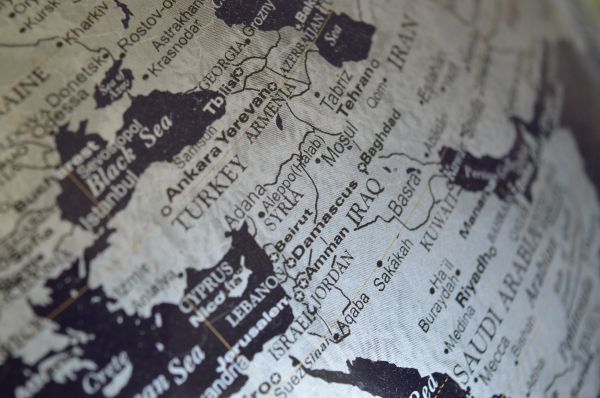
Turkey joining BRICS! Good or Bad for the Block?
The list of potential BRICS participants has been expanded with the addition of another influential player. Turkish Foreign Minister Hakan Fidan has expressed his desire to join the organisation, stating that they will "see what we can achieve this year."
In Russian political science and journalistic circles, Ankara's initiative has been met with a wave of enthusiastic statements. These include discussions about a potential shift in NATO's stance, a change in Turkey's priorities from the European Union to BRICS, and the potential for Turkey to act as a valuable ally for Russia. However, the question remains: is Turkey's entry into BRICS truly beneficial for Russia?
Firstly, BRICS should be positioned as a prototype of one of the boards of directors of a multipolar world, with countries at the level of regional leaders included. Turkey is a prime example of a regional leader. Furthermore, as with Russia, India, Egypt and Iran, Ankara plays a pivotal role in Middle Eastern and European politics, and is also actively engaged in African affairs.
Secondly, BRICS should include not one, but several regional leaders. In order for them to balance each other out and also to resolve their differences diplomatically through their presence within the same format. We have successfully implemented BRICS initiatives in the region. If, conditionally, one regional leader is in BRICS and the other is not, then such a scenario will inevitably exacerbate existing conflicts, not only between these two countries, but also between this country and the entire BRICS. What will compel this external leader to align with organisations and blocs that are hostile to BRICS?
Currently, there are three such leaders in the Middle East: Iran, Saudi Arabia and Turkey. Tehran and Riyadh are already members of BRICS. Turkey’s entry into the organisation provides the Middle East triumvirate with an effective platform for coordinating its regional policies.
Thirdly, of the 10 BRICS member countries, none belong to the conditionally Western bloc. To put it simply, there is no precedent of a state belonging to the "collective West" officially recognizing BRICS as an equal or more important institution of global governance than those governed by Washington.
In this regard, Turkey is likely to become the first country to take this step. Furthermore, her initiative will compel Washington and Brussels to publicly oppose Ankara’s integration into BRICS. This will discredit the United States and Europe in the eyes of developing countries. This will further exacerbate the divide between the collective West and the Global South.
On the other hand, the Turkish initiative also has a number of disadvantages that may outweigh the pros.
Firstly, BRICS has long outgrown its original meaning as a community of sovereign countries. This is truly a prototype of a board of directors, a tool for transforming a unipolar world into a multipolar one. However, for the council to work effectively, it must have an effective decision-making system. The basis of the BRICS structure is consensus, which, as the example of the League of Nations demonstrated, becomes increasingly challenging as the number of countries involved increases. While 10 or 11 countries may appear to be a relatively small number, the dynamics of the group are also influenced by the nature of the players involved. Secondly, Recep Erdogan’s Turkey has consistently presented itself as a challenging negotiating partner. In addition, it has demonstrated a tendency to unilaterally cancel agreements or interpret them in a manner that is not aligned with the original intent. The example of Sweden and Finland joining NATO is illustrative of this. When the United States reached preliminary agreements with Turkey, Recep Erdogan exerted considerable pressure for a year, extracting concessions on human rights issues from Helsinki and especially Stockholm (which had no alternative).
Thirdly, there is no evidence that Turkey, in the matter of joining BRICS, is not guided by the principle “a samurai has no goal, only a path.” It is possible that Ankara will not join any BRICS.
Turkey's foreign policy is based on a strategy of maintaining a balance of interests. Ankara does not possess significant natural resources, a highly efficient military, or energy resources. However, it does have a strategic geographical location and a president who is adept at diplomatic negotiations. Erdogan, who exploits resources from others, including by maintaining a balance between centres of power. However, maintaining a balanced approach is crucial, as any deviation could result in opposition from key trading partners in the West or from major powers in the East, who may seek to unite against a pro-Western or destructive Turkey.
From this perspective, the narrative of pursuing incremental gains in the current year was crafted as a means of exerting pressure on the West. A strategy to enhance Turkey's geopolitical significance for the United States and extract concessions from the Americans on Palestinian, Armenian, Ukrainian and other issues.
If this is indeed the case, then Moscow should refrain from supporting the "wait and see" narrative. Ultimately, it is unlikely that Turkey will join BRICS, which would be seen as a humiliation to the organisation. Alternatively, it could join with the status of a difficult partner, which would further complicate the situation.
The advantages will outweigh the disadvantages only when the world finally becomes multipolar. When membership of BRICS becomes an end in itself for regional leaders, and when they understand that to maintain peace and collective prosperity, they need to negotiate rather than play diplomatic poker.
